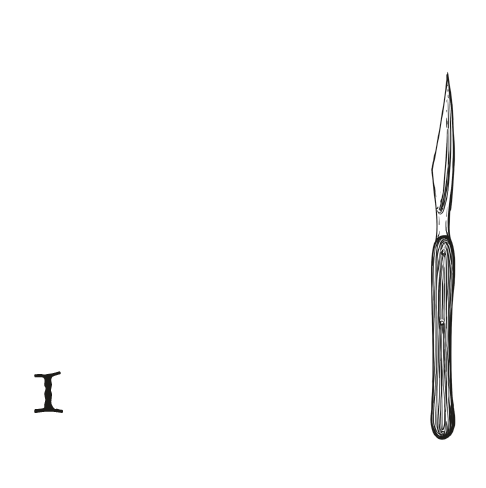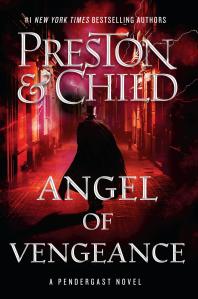Excerpt from ANGEL OF VENGEANCE

PLEASE DO NOT DISCOMPOSE YOURSELF . . .
Prologue

December 26, 1880
Wednesday
Diogenes Pendergast hurled himself into the time portal at the last minute. It ejected him into the past—into New York City of 1880—with such force that he was thrown onto the filthy cobblestones of the alleyway. With an instinctive motion, he twisted and rolled to absorb the impact, managing to cover himself with mud and horse manure in the process. Rising to his feet, he glanced back at the portal in time to catch a faint shimmer just as it winked out of existence. He briefly examined his soiled clothing with a muttered curse, but there was nothing he could do about it now. The quarry he was in pursuit of had jumped through the portal moments before . . . and was now gone. By no means must he be allowed to vanish into nineteenth-century New York.
Diogenes picked up the large leather valise he always carried with him—dropped in his fall—and hurried from the alleyway into a busy New York City intersection. His own era would call this place Times Square, but in these primitive times it still bore the name of the farmer’s field it had once been: Longacre. He made a mental note of the cul‑de‑sac he’d emerged from— identified by a grimy sign as Smee’s Alley—and peered around, looking for his man, taking in the horsedrawn carriages, the dusky shopfronts, and breathing in the heavy smell of coal smoke. And there he was: Gaspard Ferenc, hurrying down Broadway in the flow of foot traffic.
He took off after him at a quick walk. He had no concern Ferenc would realize he was being followed—the thick-headed fellow had no idea that Diogenes even existed, let alone that he had been spying on his doings for weeks . . . or had followed him through the time portal.
Why he had jumped back in time after Ferenc was something to ponder later. For now, he was strangely thrilled to have left his own sorry world behind.
He soon caught up to Ferenc and fell in step behind him. The man was dressed in a ridiculous motley of clothing, evidently assembled from whatever at hand might appear nineteenth century: a red plaid lumberjack shirt, black cargo pants, and Doc Martens. At least he’d tried to dress the part for this unknown errand of his; Diogenes had had no such time for preparation. The muck on his clothing was, in a perverse way, a godsend—it helped obscure the black turtleneck and trousers he’d been wearing while living secretly in the recesses of his brother’s Riverside Drive mansion. Such an incongruous outfit would draw even more attention than Ferenc’s.
Diogenes paused outside a restaurant, wiping his hand on a chalkboard that advertised pig trotters and smearing the chalk dust on his face. The whitening effect, he hoped, would make him look like a performer in one of the vaudeville novelty acts so popular in the theater district of the day. He then continued down Broadway after Ferenc, as he did so taking the opportunity to relieve two affluent gentlemen of their wallets and pocket watches.
Ferenc entered a pawn shop a dozen blocks south of Longacre Square. Diogenes ducked into a nearby tailor shop and hastily purchased a shirt, Inverness cape, and hat, which he then put on. His leather valise was sufficiently worn and inconspicuous that it did not need further disguising. Buttoning the cloak up to his neck and lowering the brim of his hat, he emerged again. Strolling past the pawn shop, he saw Ferenc concluding the sale of a jade figurine—stolen, by the looks of it, from the Pendergast family collection—in return for some folding money, a cape, and cap. He left the shop and continued hurrying southward, Diogenes close behind.
What was Ferenc up to? The very mysteriousness of his errand, and the abruptness with which it had commenced, fascinated Diogenes. It was obviously premeditated, and probably involved making a great deal of money—greed, he knew, was one of Ferenc’s weaknesses—but what could his plan be? Without knowing it, Ferenc could ruin everything, and the wisest course would be to kill the man at once. But curiosity, among other thoughts more nebulous, stayed his hand. He would let the man’s little scheme play out.
It did not take long to see what he was up to. Minutes later, Ferenc crossed Twenty-Sixth Street and entered the New York Federal Bank of Commerce. After loitering a few moments at a desk reserved for filling out slips, he got in line at one of the teller stations. Diogenes got in another line. Soon Ferenc had reached the window and was being served. Almost immediately, Ferenc’s intended transaction grew problematic; his teller left the iron-barred window; returned again; left once more . . . only to return with a functionary of greater importance. But even this gentleman could not satisfy Ferenc.
Diogenes had by now shuffled close enough to catch the conversation, and any lingering mystery veiling Ferenc’s sordid little scheme quickly dissipated. The man was trying to exchange $100 in period paper for twenty-five of the rare $4 gold pieces known as “Stellas”—but the bank, unfortunately, had only two on hand, both in poor condition.
Diogenes felt a swelling of derision. So this complex and dangerous field trip into the past, where so much might be accomplished by a man of imagination and daring, was merely about filthy lucre after all. He wanted to take those rare coins back to the twenty-first century and sell them for a huge profit—but already he was making a hash of it. Diogenes’s amused contempt now mingled with disappointment verging on anger. He would kill the stupid little man as soon as the opportunity presented itself.
He watched as Ferenc, enraged by the failure of his scheme, vented his ire by cursing at the woman in line behind him. A guard came forward and the ensuing struggle revealed a cheap digital watch on Ferenc’s wrist, which he’d obviously forgotten to remove. This alien object turned the minor altercation into an absurd melee, ending with the hapless Ferenc being handcuffed and dragged off in a steel-banded paddy wagon. Diogenes, watching with the rest of the crowd, overheard a policeman say the man was being transported to Bellevue Hospital. As the wagon doors closed behind him, Ferenc was loudly claiming to be from the future . . . and crying out Pendergast’s name.
Diogenes—who, like Mithridates, had managed to steel himself against almost anything—was nevertheless deeply disturbed to hear Ferenc shouting so recklessly. He, and his babbling explanations, could expose and ruin everything.
Diogenes hailed a fly carriage and followed the paddy wagon. What a perfect idiot Ferenc was: any good numismatist could have told him the Stellas were “pattern” coins, never authorized for circulation, and not normally available at a commercial bank. As he followed the paddy wagon, Diogenes mused on the irony that a man like Ferenc—brilliant enough to help design the Mars rover, or in this case repair a machine capable of crossing parallel universes—could be tripped up in an asinine get-rich-quick scheme through the vanity of inadequate preparation. Sic transit gloria mundi.
Excerpt from ANGEL OF VENGEANCE by Preston & Child
Discover the Book
A desperate bargain is broken…
Constance Greene confronts Manhattan’s most dangerous serial killer, Enoch Leng, bartering for her sister’s life – but she is betrayed and turned away empty-handed, incandescent with rage.
A clever trap is set…
Unknown to Leng, Pendergast’s brother, Diogenes, appears unexpectedly, offering to help—for mysterious reasons of his own. Disguised as a cleric, Diogenes establishes himself in New York’s notorious Five Points slum, manipulating events like a chess master, watching Leng’s every move…and awaiting his own chance to strike.
A vengeful angel will not be deterred…
Meanwhile, as Pendergast focuses on saving the unstable Constance in her fanatical quest for vengeance, she strikes out on her own: to rescue her beloved siblings from a tragic fate and take savage retribution on Leng. But Leng is one step ahead and has a surprise for them all…
